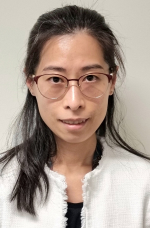Clinical Pharmacology
The curriculum for Advanced Training in Clinical Pharmacology has been redesigned. From 2026, first year trainees will be enrolled in the new curriculum.

A new curriculum for Clinical Pharmacology was redesigned through a 5-stage process. The curriculum was widely consulted on and approved by the College Education Committee and will be implemented with incoming first year trainees in 2026.
The new curricula are competency-based programs and include new learning goals, assessment tools, criteria for progression throughout the phases of training, and will be supported by a new technology platform, the Training Management Platform (TMP).
You can find the new curriculum support information and training resources at RACP Online Learning.
Subject matter experts
Specialist contractor
The specialist contractor developed an initial draft specialty curriculum in line with College-approved educational models and templates, quality standards, and project deadlines.
Dr Syed Haris Omar | Specialist contractor
Omar is a dedicated biomedical scientist with over 13 years of experience in academia, specialising in pharmacology and clinical pharmacology. As a senior lecturer, he has demonstrated a passion for teaching, research, and management, contributing significantly to the academic community. His expertise extends to curriculum design, examination, and interviewing. He has actively participated in planning and developing pharmacology curricula, ensuring relevance and quality education delivery. His multifaceted skills and experience make him an asset to the academic community, embodying a commitment to excellence in teaching, research, and ethical conduct.
Curriculum Review Group
The Curriculum Review Group reviewed and refined the draft curriculum in preparation for broad consultation.
See the Curriculum Review Group for Clinical Pharmacology Terms of Reference (PDF) for more information.
Members
Dr David Reith, FRACP | Chair
David was born in Edinburgh, raised in Canberra, trained in Sydney, Newcastle, and Brisbane, and now lives in Dunedin. He has worked as a paediatrician for 20 years and in clinical pharmacology for 30 years. His research interests are in pharmacoepidemiology, pharmacokinetics, and pharmacodynamics. David has been involved in undergraduate and postgraduate education for 25 years and has also been active in college and government committees.
Dr Joshua Inglis, FRACP | Deputy Chair
Joshua is a clinical pharmacologist with a diverse background spanning digital health systems, academia, and industry. He currently works as an EMR Optimisation Lead at SA Health's Office of the Chief Medical Information Officer, where he contributes to the advancement of the statewide electronic medical record. He is an active clinician-researcher focused on the quality use of medicines for patients with multimorbidity. He has also been an HREC reviewer and investigator on multiple early-phase clinical trials.
Dr Paul Chin, FRACP
Paul is a clinical pharmacologist at the University of Otago, Christchurch and Te Whatu Ora Health New Zealand – Waitaha Canterbury.
Dr Sally Fotheringham
Sally is a first-year clinical pharmacology trainee at The Royal Prince Alfred Hospital in Sydney. Alongside her pharmacology training, she is also studying Clinical Toxicology and training in the Chapter of Addiction Medicine.
Dr PK Loh, FRACP
PK trained as a clinical pharmacologist and geriatrician. He has a PhD in Geriatric Medicine from the University of Western Australia. He is currently an Adjunct Associate Professor at Edith Cowan University. His interests include cognitive impairment, digital health and technology, and innovation in health. PK is a committee member of the College's Learning Series, a national online digital video lecture library. Clinically, he has been providing fly-in fly-out services to rural areas in WA. He has retired from full-time public hospital service and now dedicates his time to pro bono work in committees and advocacy.
Dr Jayanthi Ramanathan, FRACP
Jay is a staff specialist physician at RPA and Liverpool Hospitals in Sydney, specialising in geriatric, general and acute medicine, and clinical pharmacology, with special interest and experience in lipid disorders. He's also involved as an Editorial Committee Member with Therapeutic Guidelines, Australian Prescriber, NSW Formulary Committee, Clinical Excellence Commission's Medication Safety Expert Advisory & Mortality/Morbidity Review Committees. Jay is additionally a Member of the College's Policy & Advocacy Committee, a local RACP examiner, and a sub-investigator on several clinical trials related to lipid disorders with no financial disclosures.
Associate Professor David Sullivan, FRACP, FRCPA

Dr Gloria Wong, FRACP
Gloria is a general physician completing advanced training in clinical pharmacology in Queensland. She is also a trainee representative on the Clinical Pharmacology Advanced Training Committee and was a trainee representative on the Queensland General Medicine Network Committee.
With extensive experience in advocating for modern training methods, Gloria believes vocational training should be adaptive with the times. Her skills in developing such a program were tested during the pandemic when she was the Chair of the Queensland Internal Medicine Education Programme (QIMEP) Committee. Gloria and her team successfully delivered an educational program that met trainees’ needs despite challenging circumstances.
In addition to her clinical and educational roles, Gloria is an early career researcher with a doctoral degree in beta-lactam therapeutic drug monitoring in critically ill patients. Her research portfolio includes projects on the quality use of medicines, polypharmacy in young individuals with disabilities, and medical outcomes in people with eating disorders. Gloria maintains an ongoing interest in pharmacokinetics across various disease states and their implications for drug research and development.